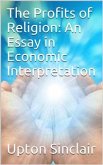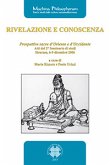The life of Bernardin de Saint-Pierre is so unusual, so interesting, so suggestive and amusing, that the grumpiest of Anglo-Saxons need not complain of the fact that no series of Great French Writers would be complete which did not contain the name of the author of "Paul and Virginia." Even "Shakespeare's heirs" must accept the judgment of other nations about their own authors. Our duty is to comprehend a verdict we are powerless to upset. Dorian women, as Gorgo says in the famous ode of Theocritus, have a right to chatter in a Dorian accent, and a great French writer is not necessarily the worse for a strong infusion of French sentiment. Saint-Pierre was no ordinary person, either as man or author. His was a strong and original character, more bent on action than on literature. Though a master of style and a great painter in words, he was ever a preacher, a sermonneur, as Sainte-Beuve calls him. His masterpiece—as the French reckon "Paul and Virginia" to be—came by chance, and is but a chapter in a huge treatise, a parable told by the way in a voluminous gospel. It is as if Ruskin's chef d'œuvre were a novelette, or as if Carlyle's story had been a perfect whole, instead of a fragment and a failure. Bernardin de Saint-Pierre was as obstinate a theorist as ever lived, and his theory was that Providence had fashioned the whole world with one intent only, namely, the happiness of man. That man was not happy, Saint-Pierre sorrowfully admitted; but there was no reason whatever, save his own folly, why he should not be as happy as the days were long. Nothing could shake this faith of Saint-Pierre's. The terrible catastrophes of life—plague, pestilence, and famine, earthquakes and shipwreck—counted with him as nothing. That sombre view of human affairs which so oppressed with gloom the great mind of Bishop Butler, and drove the lighter but humaner spirit of Voltaire into a revolt half desperate, half humorous, never affected the imagination of Saint-Pierre, who none the less had a tender heart, had travelled far by land and sea, and often had laid down his head to rest with the poor and the miserable.
Bitte wählen Sie Ihr Anliegen aus.
Rechnungen
Retourenschein anfordern
Bestellstatus
Storno





![A Theological-Political Treatise [Part IV] (eBook, PDF) A Theological-Political Treatise [Part IV] (eBook, PDF)](https://bilder.buecher.de/produkte/55/55448/55448088m.jpg)
![A Theological-Political Treatise [Part III] (eBook, PDF) A Theological-Political Treatise [Part III] (eBook, PDF)](https://bilder.buecher.de/produkte/55/55442/55442530m.jpg)


